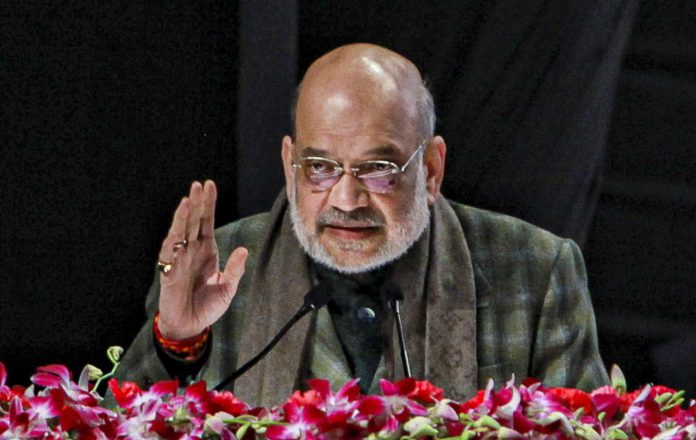
Union Home Minister Amit Shah stated on Saturday that in order to protect India’s future generations, an unyielding war against drugs is desperately needed.
Addressing a regional conference on “Drug Trafficking and National Security” organized by the Narcotics Control Bureau (NCB), Shah, according to the news agenies, emphasized the critical importance of a “whole-of-government” approach and coordination between the Centre and States to combat the growing threat of drug addiction and trafficking.
“Seven percent of India’s population is drug addict. If we don’t act now, in ten years, it will be too late,” Shah cautioned.
He warned that drug addiction has the potential to destroy entire generations, as seen in several countries across the world. “No country can remain secure if its youth are entangled in drug addiction,” he added.
Shah reaffirmed the government’s zero-tolerance attitude against drugs and declared that more than 44,792 kilogrammes of drugs worth Rs 2,411 crore that were confiscated from the overseas market would be burned during a two-week drug disposal period that runs from January 11 to 25.
He emphasised the progress done in the last ten years, stating that since 2014, 24 lakh kilogrammes of drugs worth more than Rs 56,000 crore have been recovered.
Shah said, “Critics are claiming that there has been an increase in drug consumption but the fact is that these figures reflect the success of enforcement agencies in cracking down on drug networks rather than an actual rise in use.”
He also underlined the need for comprehensive investigations, drug syndicate finance enquiries, and the total deconstruction of narco-terrorism networks.
Shah urged states to improve coordination and efficacy in anti-drug operations by leveraging technologies such as geo-tagging, videography, and real-time data-sharing via platforms like the National Narcotics Helpline’s “MANAS” portal. In order to monitor and combat trafficking activities, he also advocated for greater use of the NIDAAN database.
The Union Home Minister drew attention to serious deficiencies in the enforcement apparatus, including the absence of specialised NDPS courts in a number of states, and urged states to loosen regulations, provide training for Narcotics Control Bureau (NCB) staff, and guarantee that prosecution leads to the punishment of those who are accused.
While advocating a tough stance against drug traffickers, Shah stressed the importance of a humane approach to rehabilitate drug addicts. “Drug addicts need to be treated as victims of a larger problem. We need detailed investigations that bust syndicates while also helping addicts return to society,” he said.
In accordance with the Prevention of Illicit Traffic in Narcotic Drugs and Psychotropic Substances (PIT-NDPS) Act, the Home Minister called on State Governments to take “ruthless” action against drug dealers, seize their properties, and guarantee speedy trials in special tribunals.
Additionally, he recommended frequent assessments of district-level anti-drug initiatives and urged state police chiefs to declare districts drug-free.
Shah also underlined that strong State Forensic Science Laboratories (SFSLs) are essential to strengthen the fight against drugs, and that Chief Ministers, Chief Secretaries, and Directors General of Police (DGPs) must make sure that anti-drug strategy meetings produce results that can be put into practice.
The Ministry of Home Affairs (MHA) is pursuing a three-pronged strategy, Shah said, highlighting Prime Minister Narendra Modi’s commitment to a drug-free India by 2047. These strategies include launching massive public awareness campaigns under the “Nasha Mukt Bharat” initiative, improving inter-agency coordination, and strengthening institutional frameworks.
“India is committed to preventing even a single kilogram of drugs from entering or leaving its borders. This requires top-to-bottom investigations, the destruction of trafficking networks, and a unified approach from all enforcement agencies,” Shah said.



